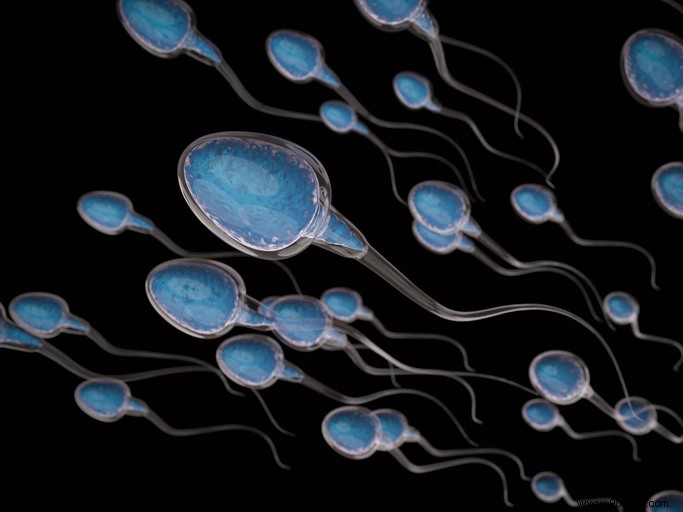Almonds, walnuts and hazelnuts are known for their benefits on our cardiovascular health. We also know that they help fight bad cholesterol. But that's not all. A new research indeed establishes a link between the consumption of these nuts and the quality of sperm in men.
Lifestyle and environmental factors have long been associated with changes in sperm count and quality. The consumption of alcohol, drugs and smoking, for example, are linked to negative changes in the production of reproductive cells. What about food? As part of recent work, researchers have looked at the consumption of nuts.
Methylation is a vital metabolic process operating constantly in all the cells of our body. Concretely, it consists of the transmission of a methyl group (a carbon atom bonded to three hydrogen atoms, or CH3) from one molecule to another. These groups position themselves on DNA and regulate gene expression. This process ensures a multitude of functions in the human body, such as the production and regulation of many molecules.
That said, researchers here conducted a randomized clinical trial to determine if and how the consumption of walnuts, hazelnuts and almonds could affect sperm DNA methylation. With this in mind, they recruited 72 healthy, non-smoking young men. On this sample, 48 of them were instructed to ingest this mixture of nuts (a small handful) in their diet for fourteen weeks. The others joined a control group (no nuts in the diet).

At the end of the study, published in the journal Andrology , the researchers observed that the methylation of 36 genomic regions was significantly different only in the group that consumed walnuts. Concretely, 97.2% of these regions – i.e. 35 out of 36 – showed hyper-methylation . This would then have had the effect of considerably increasing the number of spermatozoa produced in the subjects concerned, but also their viability and motility (the ability to move independently).
"This work demonstrates that there are certain sensitive regions of the sperm epigenome that respond to diet and that can lead to changes in sperm and its ability to fertilize” , said study author Albert Salas-Huetos.
The reasons why these nuts act on sperm methylation are not yet very clear. Nevertheless, researchers suspect that the folic acid and genistein contained within may play a role.